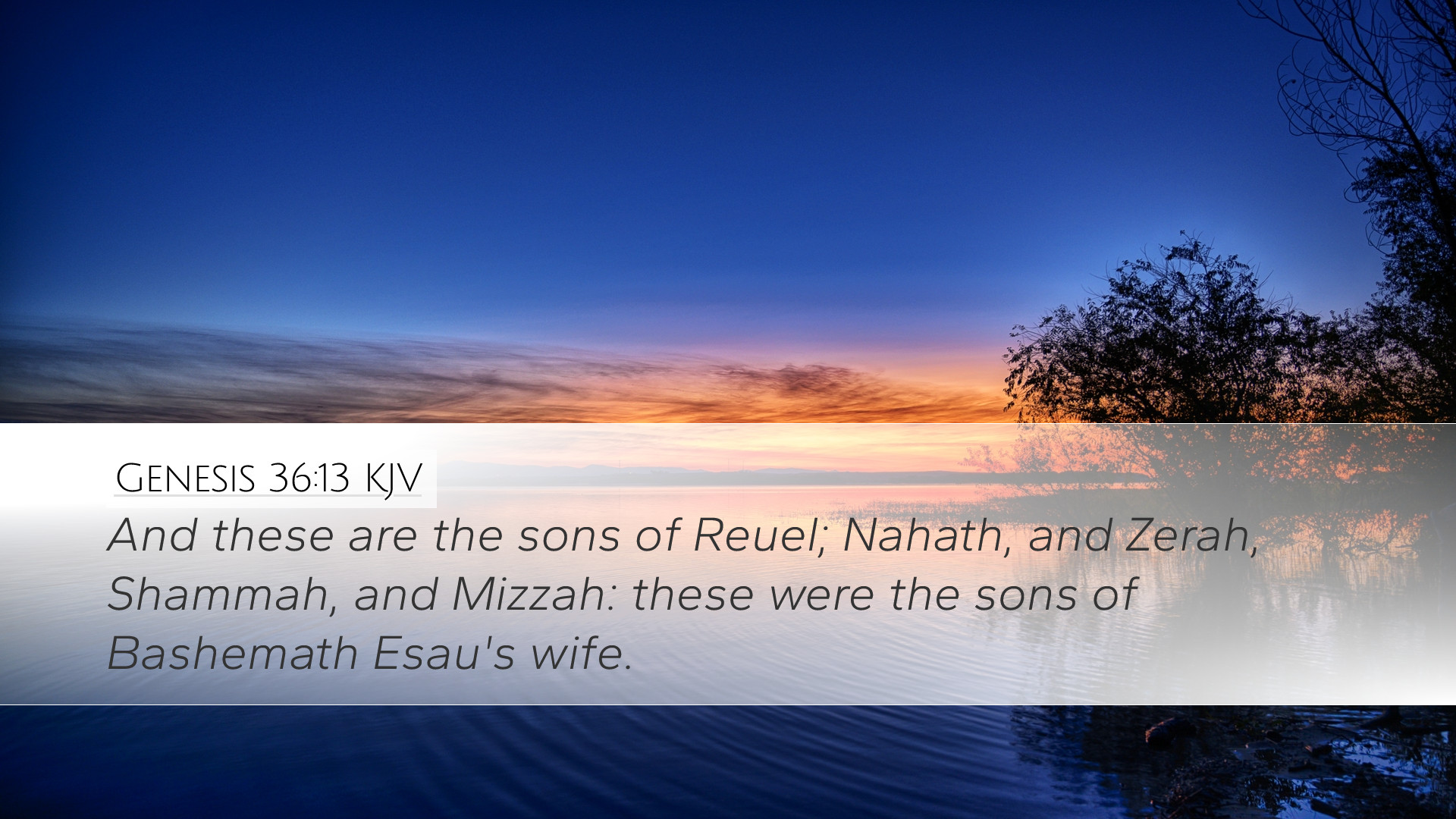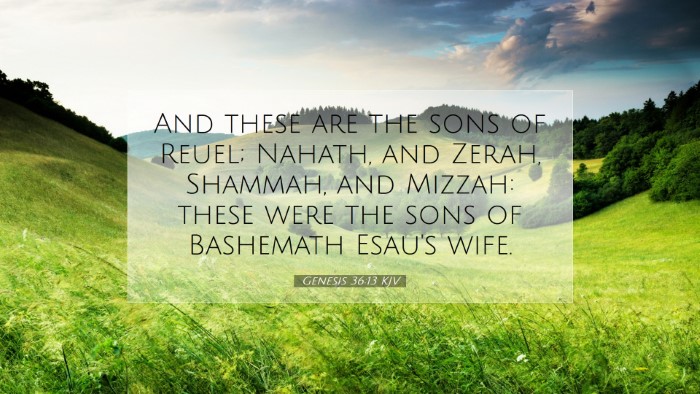Commentary on Genesis 36:13
Genesis 36:13 states: "And the sons of Reuel; Nahath, and Zerah, Shammah, and Mizzah: these are the sons of Reuel, the firstborn of Esau, the father of the Edomites."
Introduction
This verse occurs within a genealogical account that details the descendants of Esau, highlighting the familial connections that establish the Edomite people. Understanding this context is essential for pastors, students, theologians, and Bible scholars, as it sheds light on the significance of lineage, identity, and God's covenantal promises.
The Importance of Genealogy
- Historical Significance: Genealogies in the Bible serve to authenticate the historical presence of nations and tribes. Matthew Henry observes that they emphasize the continuity of God's covenant through specific familial lines.
- Cultural Context: Albert Barnes points out that genealogies were vital in ancient cultures to establish rights and privileges. The emphasis on familial connections reflects the social fabric of these communities.
- Theological Implications: Adam Clarke notes that the listing of these names serves to illustrate God's sovereignty in the establishment of nations and His providence in maintaining lineages, thereby reinforcing His promises to Abraham, Isaac, and Jacob.
Characters in Genesis 36:13
The verse specifically mentions Reuel, Esau's firstborn. An examination of his sons can reveal deeper insights:
- Reuel's Name: The name "Reuel" translates as "friend of God," which can denote God's favor. Matthew Henry emphasizes that such names carry weighty spiritual significance, hinting at the potential for divine alliance, even amidst the Edomites.
- His Sons: The four sons—Nahath, Zerah, Shammah, and Mizzah—each represent a branch of Reuel's lineage. Albert Barnes elucidates that the names may signify various attributes or destinies. For instance, "Nahath" implies rest, suggesting a place of peace in contrast to the tumultuous history of Edom.
Theological Reflections on Edom
The descendants of Esau, the Edomites, play a crucial role throughout the Old Testament narrative. Understanding this heritage is important for developing a theological framework regarding God's relationship with nations.
- Conflict and Sovereignty: The Edomites are often depicted in opposition to Israel. Adam Clarke notes that this tension reflects the broader themes of rivalry and conflict embedded within the covenantal narratives of the Bible.
- God’s Justice: The judgment against Edom as depicted in the prophetic writings indicates that while they were blessed with lineage, they also faced consequences for their actions. Matthew Henry asserts that this duality emphasizes God’s commitment to justice alongside mercy.
Applications for Today
For modern believers, the study of Genesis 36:13 offers important applications:
- Legacy and Identity: Like the biblical figures, understanding one's spiritual legacy and identity is vital. Pastors should encourage their congregations to explore their own spiritual histories and the impact on their faith journeys.
- Implications of Choice: The descendants of Esau remind us that choices, both personal and collective, have far-reaching consequences. The narrative encourages a reflection on one's path and alignment with God's will.
- Spiritual Friendship: The name Reuel, "friend of God," serves as a prompt for believers to pursue deeper relationships with God, aligning their lives with His purposes.
Conclusion
In summary, Genesis 36:13 provides a pivotal look into the lineage of Edom and the complexities of God’s plan for nations descended from Abraham. This genealogical context emphasizes the importance of names, heritage, and divine purpose, calling believers to reflect on their own spiritual legacies and relationships with God.


